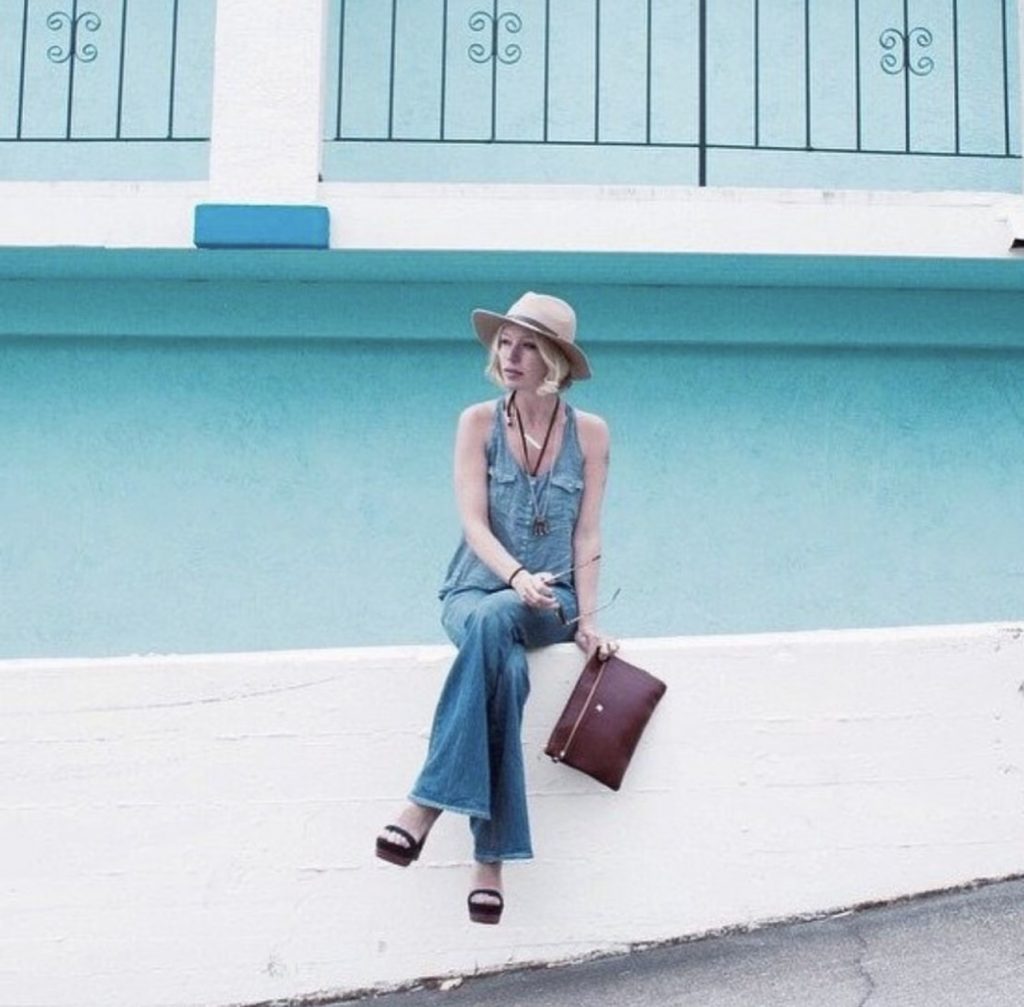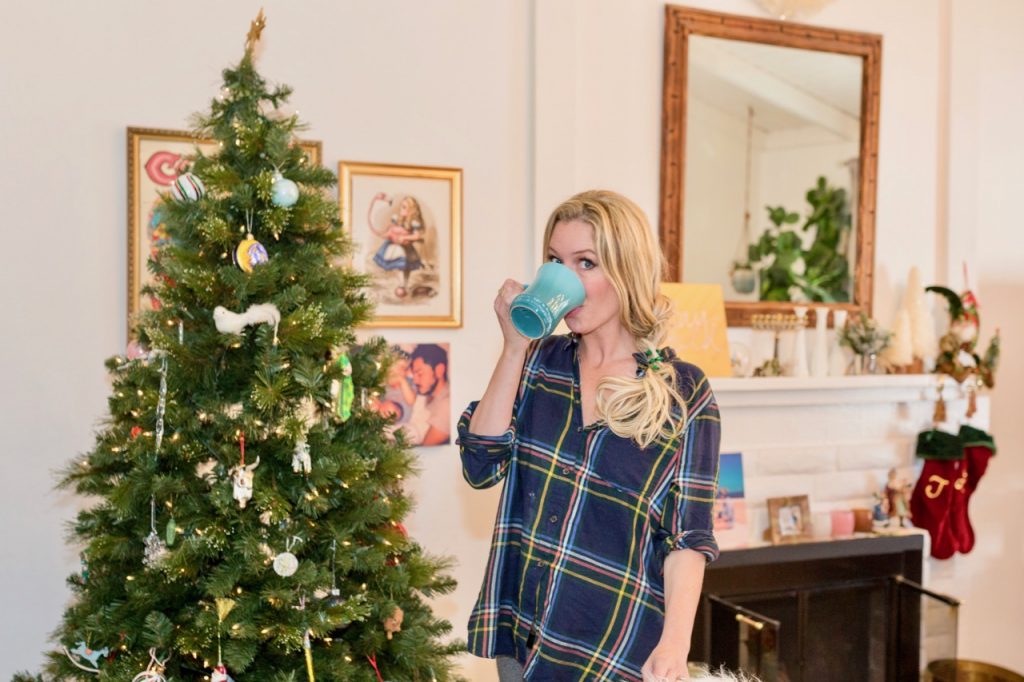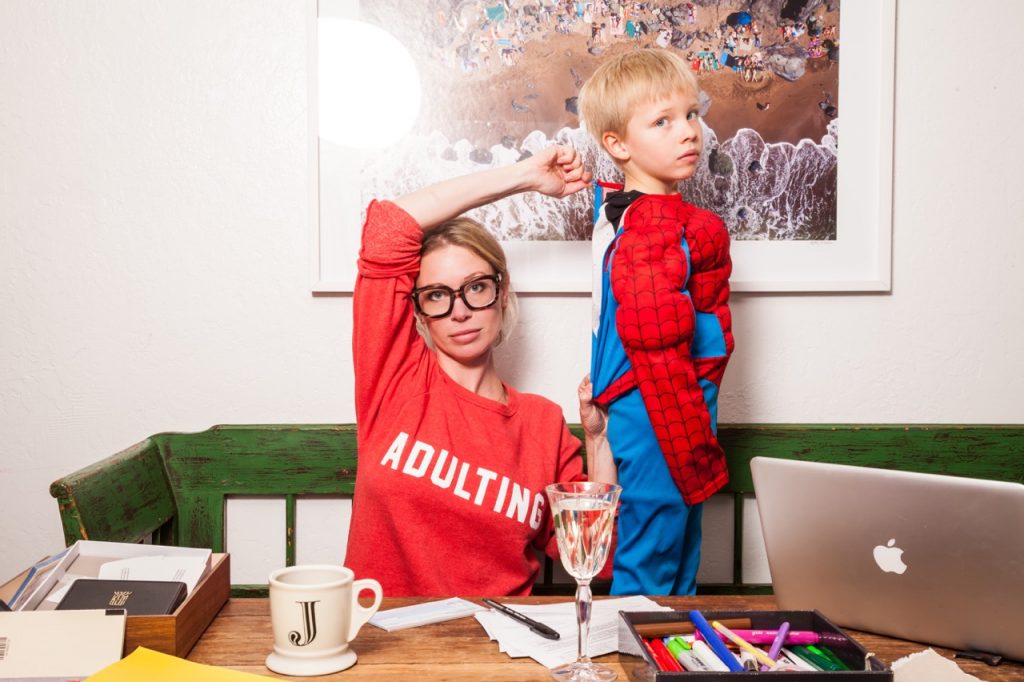
When Kendrick and I got married, I took his last name almost without thinking. In the years since – and especially since becoming a mother – I’ve felt increasingly doubtful that this was the right choice for me. Today’s post from Erin clarifies a lot of the reasons behind my – and I think a lot of women’s – discomfort with this “tradition.” – Jordan
![]()
![]()
![]()
The women in my family are great deniers of their own worth. They are whip-smart, loving but self-denigrating, victims of the circumstances of women generally during their respective eras. My maternal grandmother was a college student when she got pregnant with my mother, and dropped out to raise a family. My father’s mother lived to serve others until the day she died, making virtuous practice of self-denial.
My own mother broke that mold: As an attorney, she became deputy of this country’s second sex crimes unit, traipsing around Brooklyn in the 1970s prosecuting rapists and molesters, not having children of her own until her 30s. She is a stoic breadwinner, a great listener, but also a person who doesn’t recognize her own strength or intelligence. Her courage is undercut by her deeply-held conviction that she is not good enough.
The men in my family, like men in most families, are strong by default. In the case of my grandparents, they were the ones who supported their families financially, who wrote the rule book, had the last word. Listen to them or be punished, regardless of the merit of their message.
I do not value self-deprecation, though like my mother and my mother’s mother, I practice it regularly. I’ve spent many years trying to break free of that familiar feminine quality, but my rebellious actions mostly lead to the hot flush of shame, and even more familiar disgust. I think I’m liberated, but I’m not. For every action I take, I have to untangle the threads of thinking that I could have done it better, or shouldn’t have done it at all.
It is coded into our culture, not our XX chromosomes, to know not to ask for more, to feel grateful for what we are given. My grandmothers raised their nine babies. They birthed in bathtubs or hospitals. They denied themselves practically, habitually. They were left by their husbands through death or affairs. My maternal grandmother was hardened by experience, but my father’s mother opened her heart further, like a saint with a press release, and loved more, deeper.
I don’t want to raise my daughter this way. I don’t want her to grab at the extra skin around her belly with a tight fist in the mirror and wish there were less of her. I don’t want her to think it’s noble to deny her own dreams to advance the dreams of someone else, even her own family. I don’t want her to feel that any circumstance of her birth creates a hard ring of limitations around her.
I want her to experience vulnerability without shame, bravery without fear of losing a mythical feminine softness. I want her to be proud of the women who came before her, for what they could and couldn’t be.
I gave her my last name, not my husband’s. I do not accept that she belongs to his family more than mine by virtue of him being male. I do not accept that the practice of giving children their father’s last names is innocuous, meaningless, a trivial cultural custom to perpetuate. It is no coincidence that the women of my family, strong as they were, either largely denied themselves a life beyond raising children who were not given their names, or paved their own lives but spent them gripped by a deep-down suspicion that they did not deserve to.
It’s not a perfect gesture. My own last name belongs to my father, which is not the name my mother chose. But for me, it’s a start.
I am not in the business of telling other women how to name their children. I don’t judge the reasons women have for choosing to bestow the last name of the other parent upon their offspring. Some people choose to hyphenate, and some people think last names shouldn’t have so much punctuation. Some people think that choosing an alternative last name is a useless, petty gesture. The truth is that we can all raise our girls to be strong, fearless, and courageous women, regardless of their last name. A name is just a word, after all.
But I hope my daughter’s last name raises questions. I hope the kids at school catch wind of it and ask her why she isn’t named after her dad. It’s not because he isn’t great, it’s because I believe that the women of our family deserve more than they’ve had in the past; we deserve choice. We deserve to not be ashamed of ourselves, not call ourselves stupid, or fat, not feel like we’re always saying the wrong thing. Women are raised this way, not men. We need to look at what we take for granted, what we should not accept as standard practice. We need to take for ourselves the power that the men in our families have just because they were born.
My daughter’s name, which is mine, means we are worth more than we think.
 Erin Williams is a writer, illustrator, and mother living in New York. She believes that yogurt + goldfish is a balanced meal for toddlers, sweatpants can be fancy, and art is a daily practice. You can find more of her writing at goosecamp.co.
Erin Williams is a writer, illustrator, and mother living in New York. She believes that yogurt + goldfish is a balanced meal for toddlers, sweatpants can be fancy, and art is a daily practice. You can find more of her writing at goosecamp.co.






